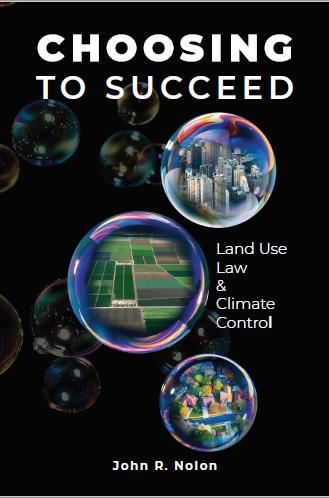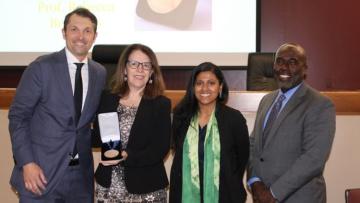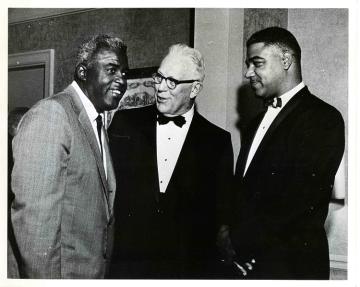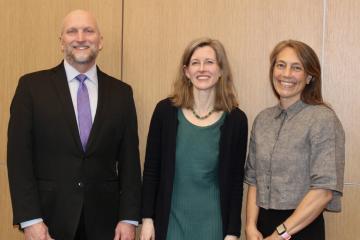Professor John Nolon publishes Choosing to Succeed: Land Use Law and Climate Control

Professor John Nolon’s new book, Choosing to Succeed: Land Use Law and Climate Control, has been published by the Environmental Law Institute (ELI). The book, released today on April 21, is the sixth book of the professor’s that ELI has published. “The Environmental Law Institute is the oldest and most prestigious authority on environmental law in the USA. ELI’s independent studies, books and its journal, The Environmental Forum, attract attention across the country and internationally. ELI is a respected source for practicing attorneys, corporations, legislators, environmental public interest law firms, academics and law schools,” remarked Haub Law Professor Nicholas A. Robinson.
Professor Nolon’s latest book examines the “land use climate bubbles” that are popping up throughout the nation and the resulting cost to the economy and ecosystems, costs that will exceed those caused by the housing bubble and resulting recession. Professor Hannah Wiseman at Penn State Law School has this to say: “This is the hopeful comprehensive, solution-oriented book that the climate crisis has long demanded. Professor Nolon–the leading U.S. voice on land use law and sustainability—expertly pinpoints local governments as the locus for both climate impacts and solutions, exploring local and collaborative pathways for mitigating and adapting to a rapidly changing climate.”
Professor Nolon notes that he decided to write this book “because climate change policy tends to overlook the powerful influences that local land use law can have in creating resilient communities and mitigating climate change. There are 40,000 local governments in the United States with broad and flexible land use power. This book is written for elected local officials, land use board members, land developers, and local climate change advocates. By explaining to them and their lawyers tested land use strategies, we add significantly to the means by which we can address the escalating consequences of climate change. In the aggregate, this local progress can complement significantly positive action at the state and federal level.”
Professor Nolon acknowledges the dozens of Haub Law students who contributed to the completion of this book. “The Land Use Law Center is a unique and effective academic model. Our students are engaged in meaningful practical work with the Center, much of which focuses on the local consequences of climate change. Our Center staff, as adjunct professors, not only teach these students in classes, but also engage them in the real world legal work of the Center. I thank the students and staff who helped me find and describe dozens of practical strategies that local governments can use to promote positive and necessary change.” He adds that “most of our graduates practice law at the local level, so this is essential professional training that helps them find and excel at jobs in land use, real estate, and environmental law.”
John R. Nolon is Distinguished Professor of Law Emeritus at the Elisabeth Haub School of Law at Pace University where he supervises student research and publications on land use and sustainable development law. He is Counsel to the Law School's Land Use Law Center, which he founded in 1993, and served as Adjunct Professor of land use law and policy at the Yale School of the Environment from 2001-2016.
You can read the Environmental Law Institute’s press release on the book here.
About Elisabeth Haub School of Law
Elisabeth Haub School of Law at Pace University offers J.D. and Masters of Law degrees in both Environmental and International Law, as well as a Doctor of Juridical Science (SJD) in Environmental Law. The school, housed on the University’s campus in White Plains, N.Y., opened its doors in 1976 and has more than 9,000 alumni around the world. The school maintains a unique philosophy and approach to legal education that strikes an important balance between practice and theory. Haub Law launched its Environmental Law Program in 1978, and it has long been ranked among the world’s leading university programs, with a current #1 ranking by U.S. World and News Report. Pace’s doctoral graduates teach environmental law at universities around the world. Pace’s J.D. alumni are prominent in environmental law firms, agencies and non-profit organizations across the U.S. and abroad. In 2016, the Law School received a transformational gift from the family of Elisabeth Haub, in recognition of its outstanding environmental law programs. For more information about Haub Law, visit http://law.pace.edu



